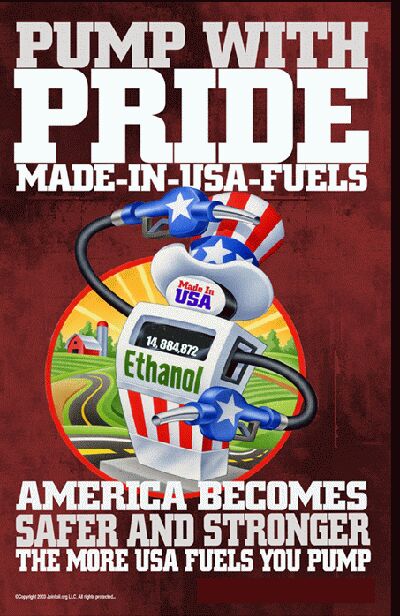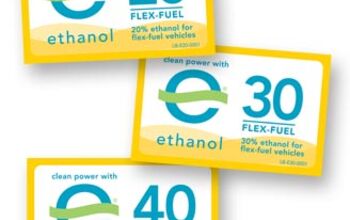E85 Boondoggle Of The Day: Mandatory Flexibility
Green Car Congress reports that an “Open Fuel Standards Act” has been introduced which would require half of all light duty vehicles sold in the US to be flex-fuel capable. The legislation would ramp up requirements to mandate 80 percent flex-fuel capability by 2015. Since ethanol has been running into trouble of late, the industry’s plan now centers on forcing OEMs to bring flex-fuel capability across their lineups, which supporters say will drive greater availability of E85 pumps. The plan would also enable the proliferation of mid-range ethanol blends like E20 and E30, since E85-capable flex-fuel vehicles would also be able to run on the intermediate blends that the ethanol industry so desperately wants to become mainstream. The only waivers for this mandate would be for OEMs who can prove that ethanol fuels prevent plug-in hybrids and other alt-energy vehicles to flunk state emission standards. Meanwhile, as rules are being written for the Renewable Fuel Standard, and a group of Senators are moving to prevent the use of indirect land use change (ILUC) to calculate the total GHG output of biofuels.
The law mandates measurement of “direct emissions and significant indirect emissions such as significant emissions from land use changes, as determined by the Administrator.” And though there are many complexities in attempting to calculate the full impact of biofuels, Senators don’t see this as a challenge to be undertaken, but a baby to be thrown out with the bathwater. The senators “urge EPA to refrain from including any calculations of the ILUC components in determining life-cycle GHG emissions for biofuels at this time. The premature publication and use of inaccurate or incomplete data could compromise the ability to formulate a sound approach to implementing this life cycle GHG emissions requirement in the future. And the resultant rulemaking confusion could seriously harm our US biofuels growth strategy by introducing uncertainty and discouraging future investments.” Oh yeah, and we would have to find new campaign contributors too.
More by Edward Niedermeyer
Latest Car Reviews
Read moreLatest Product Reviews
Read moreRecent Comments
- Redapple2 I retract my comments and apologize.
- Flashindapan I always thought these look nice. I was working at a Land Rover dealership at the time the LR3 came out and we were all impressed how much better it was then the Discovery in just about every measurable way.
- Bd2 If I were going to spend $ on a ticking time bomb, it wouldn't be for an LR4 (the least interesting of Land Rovers).
- Spectator Wild to me the US sent like $100B overseas for other peoples wars while we clammer over .1% of that money being used to promote EVs in our country.
- Spectator got a pic of that 27 inch screen? That sounds massive!


































Comments
Join the conversation
"Don’t use my tax money to pay for the research or infrastructure of E85. Look for venture capital. If no one is interested, probably it’s a bad idea. If someone invested and earned big, good for him." You do know that the Internet and GPS technology both started as government funded projects, yes? To this day, GPS receivers rely on signals provided gratis by the US government's network of GPS satellites.